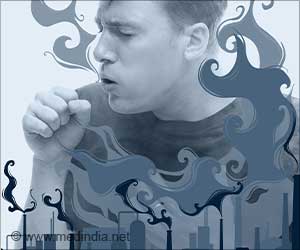The country needs to institutionalize a system where marginalized communities receive universal healthcare and financial protection, said Narendra Modi.

He said the country needs to institutionalize a system where marginalized communities receive universal healthcare and financial protection as "unfortunate health episodes" are making people financially weak.
"One of our major concerns is equity. As a step towards ensuring equitable health services across regions that suffer from intra-state disparities, and to bring about sharper improvements in health outcomes, a total of 184 poorest performing districts all over the country have been identified."
"Special efforts are being made to put in more resources and focused programs in these areas," he said here while addressing the 'Global Call to Action' Summit 2015 being attended by representatives of 24 nations. The summit seeks to ensure cohesion among countries to end preventable maternal and child death.
Talking about India's achievement in eliminating maternal and neonatal tetanus much before the global target date of December 2015, Modi extended his government's commitment to the global community with technology and programme intervention to combat disease.
"The message is of our commitment, that we will ensure that every woman, every child who can be saved will be saved. We also need to make a clarion call to the world to join hands in taking such steps that would ensure this."
He said he has witnessed people getting financially weak because of "unfortunate health episodes" and proposed to "institutionalize a system where marginalized communities receive universal health care and financial protection. We must experiment and learn from each other".
Describing as "truly historic" India's "victory" in eradication of polio, Modi that from being a country accounting for more than a half of the global polio cases in 2009, to being declared free "reflects India's deep commitment to child health".
"Last year, I had made a commitment of assisting the SAARC countries in keeping it polio free. We have also made a commitment to provide Pentavalent vaccines to such SAARC countries as would need it."
"We will offer whatever experience we have to the world community. India would be happy to assist any country with technology, system strengthening and programme implementation capsules," he said.
Asserting that India's "birth cohort" of 26 million is a formidable challenge, Modi said India's commitment to succeed is also strong. The Prime Minister said the world "sadly" continues to lose about 289 thousand mothers and 6.3 million under-5 children every year even as the world transits from the Millennium Development Goals to Sustainable Development Goals.
The 24 priority countries participating in the Summit today contribute nearly 70 percent of the preventable maternal and child deaths. Modi said the joint statement issued subsequent to the visit of the US President Barack Obama to India in January this year also agreed to further accelerate the joint leadership to end all preventable maternal and child deaths.
"How we shape the world in the next 15 years will make the difference between prosperous, optimistic nations, and insecurity and unrest". Modi also underlined his government's commitment to ensuring that no child in India dies of a vaccine-preventable disease and said the largest immunization drive another mission known as "Mission Indradhanush" has been launched.
It seeks to accelerate the annual rate of immunization from existing 1 percent to more than 5 percent per year so as to achieve more than 90 percent coverage by 2020. He said that programs like the National Health Mission has resulted in improved health outcomes and Janani Suraksha Yojana has ensured that 75 percent of the deliveries take place in health care centers.
Extending India's support to all the 24 participating countries in the summit including the SAARC nations, he said India's "rich" experience in universal immunization including 'mission indradhanush' could be shared with them.
"We could train personnel and skill them for better management of child sickness in our Special Newborn Care Units (SNCUs) as well as share our experience at home based new born care," he said.
The two-day summit is being co-hosted by the Health Ministry along with Ethiopian Health Ministry, USAID, UNICEF, The Bill and Melinda Gates Foundation and Tata Trusts.
The summit is a confluence of health ministers from the 24 priority countries that committed to the global Call to Action for Child Survival in June 2012 apart from health ministers from India, international academic experts, health practitioners and civil societies.
Source-PTI
 MEDINDIA
MEDINDIA




 Email
Email







